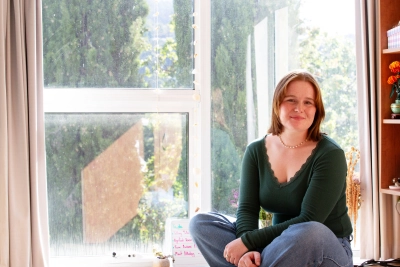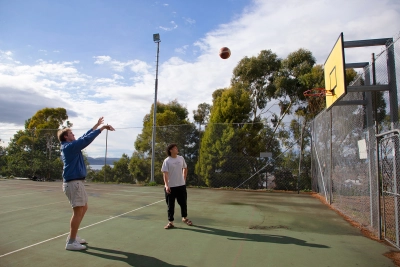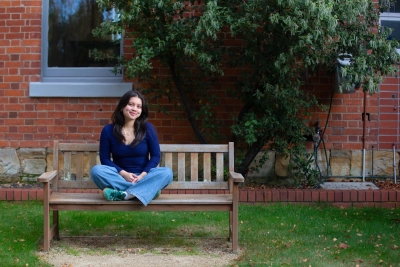
Smart Study: Your Guide to Thriving Through Exam Season
As Australian students prepare for their upcoming exam period, the pressure to perform can feel overwhelming. Late-night cramming sessions, skipped meals, and mounting anxiety have become almost synonymous with exam season. But what if there was a better way? Research increasingly shows that prioritising your wellbeing isn't just good for your health, it's essential for academic success.
The Science Behind Wellbeing and Performance
The connection between student wellbeing and academic achievement is stronger than many realise. Research using machine learning models has demonstrated that students with greater wellbeing are more likely to achieve higher academic scores months later, even after accounting for previous performance and other factors.
Students who are happy and healthy have been shown to demonstrate better concentration, motivation and energy levels, and tend to develop better coping skills for life. This isn't just about feeling good, it's about creating the optimal conditions for your brain to learn, retain information, and perform under pressure.


Sleep: Your Secret Academic Weapon
If you're planning to pull all-nighters to cram for exams, you might want to reconsider. Research tracking nearly 100 students throughout a semester found that both longer sleep duration and better sleep quality over the full month before an exam were associated with better test performance.
The most surprising finding? It's not just the night before that matters; students who went to bed after a certain threshold time (around 2 am though it varied individually) tended to perform less well on tests, regardless of how much total sleep they got.
Researchers found an essentially straight-line relationship between the average amount of sleep students got and their grades, with performance ranging from A's to C's. The message is clear: consistent, quality sleep throughout your study period matters.
Sleep Tips for Exam Season:
- Aim for 7-9 hours of sleep per night
- Maintain consistent sleep and wake times, even on weekends
- Avoid studying in bed, keep your bedroom for sleep only
- Put away screens at least an hour before bedtime
- If you must study late, stop by 11 p.m. to allow for wind-down time
Move Your Body, Boost Your Brain
When exam stress hits, exercise often becomes the first thing students sacrifice. Yet physical activity might be one of the most powerful study tools available.
Research on university students found that eight weeks of regular aerobic exercise improved all components of sleep quality and significantly reduced fatigue levels. Remarkably, this improvement continued even during the stressful exam period itself.
Exercise has been shown to regulate the body's circadian rhythm, enhance relaxation, and reduce symptoms of insomnia, while also helping students fall asleep faster and promoting deep, restorative sleep stages crucial for memory consolidation.
Making Exercise Work for You:
- Schedule 30-minute activity breaks between study sessions
- Take walking meetings with study partners
- Use exercise as a transition between subjects
- Try yoga or stretching to manage exam anxiety
- Remember: even a 10-minute walk can reset your focus


The Power of Fresh Air and Nature
Never underestimate the restorative power of stepping outside. Fresh air and natural light help regulate your circadian rhythm, improving both your mood and sleep quality. When you're deep in study mode, it's easy to become trapped indoors, but this can exacerbate stress and reduce productivity.


Meaningful Breaks: The Jane College Approach
At Jane, students are supported during exam time with structured activities to support their wellbeing.
"In Wellness Week, the week prior to exams, we have a week of ‘swot vac’ where we provide meaningful breaks from study each day with something that will help the residents with their wellbeing and stress levels,” says Sarah Hopkins, Dean of Students at Jane.
“On one day, we have golden retriever dogs that come in to spend time with the residents, and another day, the Miss Whippy ice cream truck comes by. Residents can also schedule a 10-minute mini massage as they need."
Strategic breaks are critical. Scrolling social media doesn't provide the same restoration as activities that engage different parts of the brain or reduce stress hormones.
"We're here to help, we genuinely care and want to make sure all our residents succeed," says Sarah.


Creating Your Own Meaningful Breaks:
Short Breaks (5-10 minutes every hour):
- Stand up and stretch
- Make a cup of tea or a healthy snack
- Step outside for fresh air
- Do a quick breathing exercise
- Chat with a friend or family member
Longer Breaks (20-30 minutes every few hours):
- Go for a walk or light exercise
- Have a proper meal away from your desk
- Spend time with pets
- Practice mindfulness or meditation
- Listen to music (not while studying!)
- Connect with nature
Nutrition: Fuel Your Focus
Your brain needs proper fuel to function optimally. During exam season, it's tempting to survive on coffee and quick snacks, but this approach backfires. Complex carbohydrates, protein, healthy fats, and plenty of water support concentration and memory.
Plan and prepare simple, nutritious meals ahead of time. Keep healthy snacks readily available. Nuts, fruits, yoghurt, and vegetables with hummus are all brain-boosting options. Stay hydrated throughout the day, as even mild dehydration can impair cognitive function.


Managing Stress and Anxiety
Some exam stress is normal and can even be motivating, but excessive anxiety undermines performance. Research shows that students who are intellectually curious, persistent and better able to control their emotions outperform their peers, demonstrating that cognition and emotion are intertwined ingredients of academic success.
Stress-Management Strategies:
- Practice regular mindfulness or deep breathing exercises
- Break large tasks into smaller, manageable chunks
- Create a realistic study schedule with built-in buffer time
- Talk about your concerns with friends, family, or counsellors
- Limit caffeine, especially in the afternoon
- Remember that your worth isn't determined by exam results
Building Your Support Network
You don't have to navigate exam season alone. Reach out to family and friends for emotional support and encouragement, study groups for collaborative learning and motivation, and teachers and tutors for academic clarification.


Creating Your Exam Season Wellness Plan
- Map out your exam schedule and identify high-stress periods
- Block out non-negotiable self-care time including sleep, meals, and exercise
- Plan your study schedule around your peak energy times
- Prepare your environment with proper lighting, comfortable seating, and minimal distractions
- Schedule regular breaks and plan meaningful activities for longer breaks
- Identify your support people and don't hesitate to reach out when needed
- Practice self-compassion—be as kind to yourself as you would be to a friend
The Bottom Line
Academic success is enhanced through good sleep, exercise, nutrition, fresh air, and meaningful breaks. These aren't luxuries or time-wasters; they're essential ingredients for optimal performance.
As institutions like Jane demonstrate through their Wellness Week initiative, prioritising student wellbeing creates an environment where students can truly thrive. Whether you're at a residential college or studying at home, you can apply these same principles.
Remember: the goal isn't just to survive exam season, but to emerge from it with both good results and good health.
Looking for more support during exam season? Consider reaching out to your school's student services, connecting with study groups, or exploring whether your institution offers wellness programs similar to Jane's innovative approach. Your wellbeing is an investment in your success—not a distraction from it.